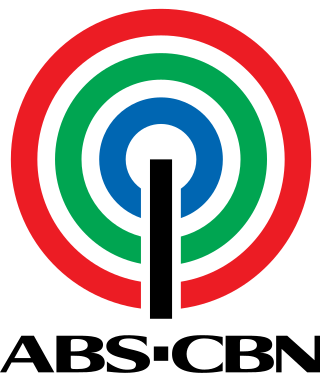Related Research Articles

Television was introduced in Finland in 1955. Color television started in 1969 and was introduced gradually, with most programs in color by the late 1970s. All terrestrial analogue stations stopped broadcasting on 1 September 2007 after the introduction of digital television; cable providers were allowed to continue analog broadcasting in their networks until 1 March 2008.

Television New Zealand, more commonly referred to as TVNZ, is a television network that is broadcast throughout New Zealand and parts of the Pacific region. All of its currently-operating channels are free-to-air and commercially funded.

Doordarshan is an Indian state-owned public television broadcaster founded by the Government of India, owned by the Ministry of Information and Broadcasting and one of Prasar Bharati's two divisions. As one of India's largest broadcasting organisations in studio and transmitter infrastructure, it was established on 15 September 1959. Doordarshan, which also broadcasts on digital terrestrial transmitters, provides television, radio, online and mobile services throughout metropolitan and regional India and overseas.
Digital terrestrial television is a technology for terrestrial television where television stations broadcast television content in a digital format. DTTV is a major technological advance over analog television, and has largely replaced analog television broadcast, which had been in common use since the middle of the 20th century. Test broadcasts began in 1998 with the changeover to DTTV, also known as the Analog Switchoff (ASO) or Digital Switchover (DSO), which began in 2006 and is now complete in many countries. The advantages of digital terrestrial television are similar to those obtained by digitizing platforms such as cable TV, satellite, and telecommunications: more efficient use of radio spectrum bandwidth, provision of more television channels than analog, better quality images, and potentially lower operating costs for broadcasters.
Boxer TV Access is a Swedish brand owned by Tele2 AB providing pay television channels on the digital terrestrial television network in Sweden. Modeled on the British ITV Digital, it was founded in October 1999. Some channels on the Swedish DTT are free-to-air, but most of the channels require subscription from Boxer. Boxer has claimed to have around 500,000 subscribers by June 2016 when it was acquired by ComHem.

MultiChoice is a South African company that operates DStv, a major satellite television service in Sub-Saharan Africa, and GOtv, a minor service operating in over nine countries of this area and Showmax service. MultiChoice was formed out of the subscriber-management branch of the M-Net terrestrial pay television company, and broadcasts the full range of M-Net channels on the DStv service. MultiChoice is owned by the media conglomerate of the same name. One of the subsidiaries of MultiChoice is DStv Now, renamed as DStv App, a service that delivers television transmission to mobile devices such as laptops, smart phones and notebooks.

ABS-CBN is a Philippine commercial broadcast network that serves as the flagship property of the ABS-CBN Corporation, a company under Lopez Holdings Corporation owned by the López family. The network is headquartered at the ABS-CBN Broadcasting Center in Quezon City, with additional offices and production facilities in 25 major cities including Baguio, Naga, Bacolod, Iloilo, Cebu, Davao, and Bulacan, where ABS-CBN's production and post-production facility in Horizon IT Park is located. ABS-CBN is colloquially referred to as the Kapamilya Network; its brand was originally introduced in 1999 and was officially introduced in 2003 during the celebration of its 50th anniversary, and was used until it was forced by the National Telecommunications Commission to cease and desist from free-to-air broadcasting due to the lack of congressional franchise. ABS-CBN is the largest media company in the Philippines and oldest television broadcaster in Southeast Asia.
YurView California is an American cable television channel serving San Diego, California, owned by Cox Communications, which carries the channel primarily on its San Diego area systems on channel 4.

Uganda Broadcasting Corporation (UBC) is the public broadcaster network of Uganda. It was founded as a result of the "Uganda Broadcasting Corporation Act, 2004", which merged the operations of Uganda Television (UTV) and Radio Uganda. It started broadcasting on November 16, 2005.
Television in Pakistan started in 1964 and the first live transmission of Pakistan Television began on 26 November 1964, in Lahore.

ZOE Broadcasting Network, Inc. is a Philippine broadcast media arm of the Jesus Is Lord Church. Based in Ortigas Center, Pasig, it operates a network of television and radio stations in Mega Manila, Baguio, Bacolod, Calamba, Laguna, Cebu, Cagayan de Oro, Davao, Iloilo and Puerto Princesa. The company also owns its first television station in Metro Manila, DZOE-TV 11 and its DTT companion UHF channel 20, which currently airs the A2Z network, a joint-venture partnership between ZOE and ABS-CBN Corporation through its blocktime agreement.

TVSN is an Australian and New Zealand broadcast, cable television and satellite television network specialising in home shopping. It is owned by parent company Direct Group Pty Ltd, a home marketing and shopping company based in the Sydney suburb of Frenchs Forest, which also owns sister channel Expo.
DVB-T2 is an abbreviation for "Digital Video Broadcasting – Second Generation Terrestrial"; it is the extension of the television standard DVB-T, issued by the consortium DVB, devised for the broadcast transmission of digital terrestrial television. DVB has been standardized by ETSI.
Digital terrestrial television in Finland was launched on August 21, 2001. The analogue networks continued its broadcasts alongside the digital ones until September 1, 2007, when they were shut down nationwide.
Digital terrestrial television in the Philippines began in 2015 with the implementation of ISDB-T, currently coexisting with analog television that operates on the NTSC standard after the set analog switch-off (ASO) deadline encountered multiple postponements.
Television in Portugal was introduced in 1956 by Radiotelevisão Portuguesa, which held the nationwide television monopoly until late 1992. Regular broadcasting was introduced on March 7, 1957. Colour transmissions were introduced on March 10, 1980.

The digital television transition, also called the digital switchover (DSO), the analogue switch/sign-off (ASO), the digital migration, or the analogue shutdown, is the process in which older analogue television broadcasting technology is converted to and replaced by digital television. Conducted by individual nations on different schedules, this primarily involves the conversion of analogue terrestrial television broadcasting infrastructure to Digital terrestrial television (DTT), a major benefit being extra frequencies on the radio spectrum and lower broadcasting costs, as well as improved viewing qualities for consumers.

Disney Channel is a Spanish terrestrial television channel owned and operated by The Walt Disney Company Iberia, and it is a localized version of the American television channel of the same name.
Record Europa is a Portuguese pay television channel owned by Record, a Brazilian television network. Its programming is mostly taken from the Brazilian network. It provides general entertainment, telenovelas, Brazilian reality TV shows, and news. The channel also produces a limited amount of local content. Similar to what happens in Brazil, Record's main competitor is Globo. Igreja Universal do Reino de Deus religious programming is transmitted at late nights.
References
- 1 2 EUPAL, FELIX. "Record expands its wings". The Observer - Uganda. Retrieved 2019-12-05.
- ↑ "Record fala inglês e abre filial em Uganda". Folha de São Paulo. 19 October 2005. Archived from the original on 10 November 2023. Retrieved 10 November 2023.
- ↑ "Aroldo Martins de Rede Record: Inaugurada central de producción en Londres". Produ.com. 22 February 2006. Archived from the original on 13 June 2023. Retrieved 13 June 2023.
- ↑ "Super Girl talent kicks off". NewVision. 8 December 2006. Archived from the original on 10 November 2023. Retrieved 10 November 2023.
- ↑ "Straka, Oimuke an item?". NewVision. 19 August 2006. Archived from the original on 10 November 2023. Retrieved 10 November 2023.
- ↑ "STAR TRAIL: Record TV loses 'I Do', Amarula joins Bukedde TV". The Observer. 16 December 2009. Archived from the original on 15 January 2024. Retrieved 15 January 2024.
- ↑ "Record TV Reportedly Runs Out Of Money To Pay Employees,Set To Close Shop At The Beginning Of April". Galaxy FM. 23 March 2021. Archived from the original on 23 March 2021. Retrieved 10 November 2023.
- ↑ "Record TV Reportedly Runs Out Of Money To Pay Employees,Set To Close Shop At The Beginning Of April". Daily Express. 31 March 2021. Archived from the original on 31 March 2021. Retrieved 10 November 2023.